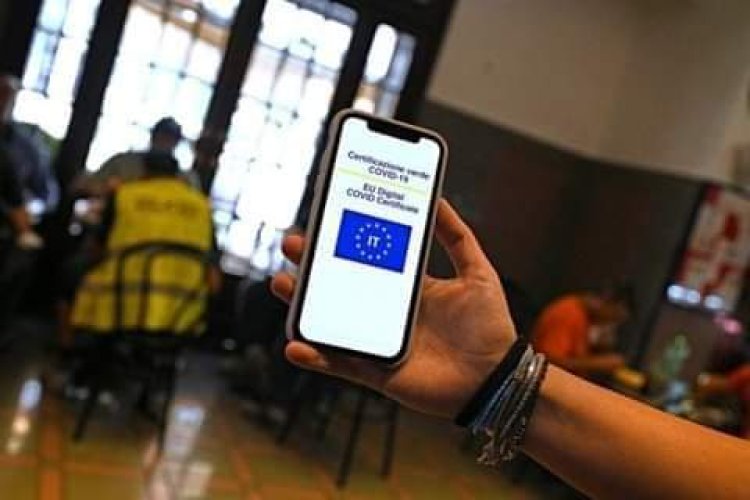EU countries agree to simplify travel rules with Covid certificates

EU countries have agreed to make it easier for anyone with an EU Covid-19 certificate to travel within the bloc without having to face any further restrictions such as tests or quarantine.
The EU council, made up of member states has agreed a new recommendation, that countries should base their travel rules on an individual case rather than the region they are travelling from.
That would mean those with an EU Covid certificate, which proves vaccination, recovery or a negative test would be allowed to travel freely within the EU or Schengen zone without the need for extra tests or quarantine, even if they were coming from a country with high Covid infection rates.
This refers only to travel, and not to the domestic health or vaccine passes that many EU countries now require to access venues such as bars.
The aim of the recommendation is to “take into account the advantage of the individual situation of people, especially vaccinated people, and limit for them as much as possible travel restrictions in Europe,” France’s European Affairs Secretary Clément Beaune said.
The recommendation is set to come into force on February 1st, but it is non-binding so individual EU countries would be free to impose whatever travel restrictions they wish if they feel the need.
The EU created its Covid-19 certificate scheme to try to ensure free movement throughout the bloc but as infections spiked again in the winter certain countries chose to reimpose extra restrictions on all travellers.
In December Italy tightened travel restrictions for arrivals from other countries within the European Union.
All travellers to Italy from other EU countries have been forced to take a coronavirus test before departure and unvaccinated arrivals must quarantine for five days. That rule is in place until at least February 1st when it may be replaced by the EU’s new recommendation.
Under the EU’s recommendations from February 1st travellers should be able to freely travel to another EU country if they have had their primary course of vaccination a maximum of 270 days ago (roughly nine months) or if they have received their booster shot.
Those who have recovered from Covid in the last 180 days, and passengers who have had a PCR test 72 hours before arriving or an antigen test 24 hours before should also be allowed to enter without any further test requirements or need to quarantine.
Those without an EU Covid certificates could face extra testing requirements, although the EU recommends essential workers, cross-border commuters and children under 12 should be completely exempt.
However the one exception is if a country is classed “dark red” on the European Centre for Disease Prevention and Control’s colour-coded risk map. In this case country’s could impose extra travel rules even on the vaccinated.
Given the spike in Omicron cases most of the EU is currently coloured dark red. But the map will soon be modified to take into account a country’s vaccination rates when determining risk level.
Source: The Local


















































